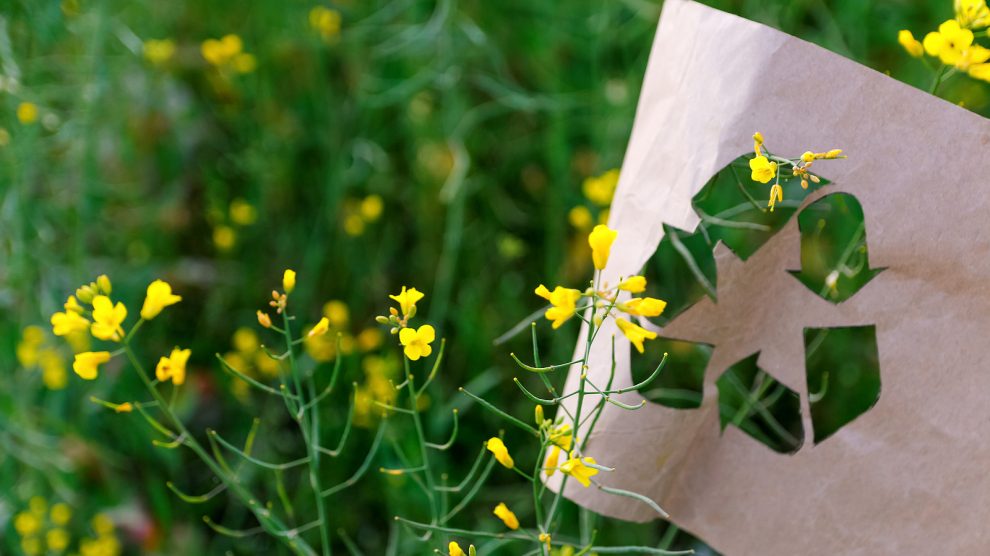The need to cut greenhouse gas emissions is more urgent than ever, and a new Estonian start-up is incentivising producers to use more recycled materials to reduce their carbon footprint.
Each year, 100 billion tonnes of raw materials are extracted from the Earth—and according to the Circularity Gap Report 2023, only 7.2 per cent were reused this past year. This percentage is lower than in 2018, when 9.1 per cent of materials were reused.
Energy production accounts for only 49 per cent of global greenhouse gas emissions—the other 51 per cent is derived from material production. Material extraction and use additionally drives 90 per cent of global biodiversity loss and water stress. Some 420 million hectares—an area the size of Iraq—has been deforested globally in the last 30 years, and global wildlife populations have declined on average 69 per cent since 1970.
However, adopting circular solutions that allow materials to be used and reused longer could allow humanity’s material needs to be fulfilled with only 70 per cent of the materials currently used.
- Emerging Europe’s most competitive IT sector? Estonia, again
- Economy in focus: Estonia
- In Estonia, a new boost for personalised healthcare
Rain Vääna and Argo Rannamets worked on the board of Ragn-Sells, a Swedish recycling company with operations in the Baltics, for years. They saw that even while recycling companies worked hard to collect and sort used materials, material producers were largely uninterested in making their products with secondary materials—even if they were equal in price to raw materials and their saved emissions—due to perceptions that they were more cumbersome to process.
Vääna and Rannamets decided that they wanted to start a new company that would incentivise producers to use secondary materials. Their start-up, KWOTA, launched in Tallinn in September 2021.
Material circularity
KWOTA is the first company to develop a global standard for digitally verifying carbon emissions reduction from material recovery. It creates standardised high-impact, ex-post carbon credits through material circularity—with KPMG auditing for accuracy.
KWOTA works with producers who agree to replace raw materials with secondary materials. KWOTA records and verifies this increase in reused materials and creates a carbon credit that represents a tonne of carbon dioxide removed from the atmosphere. After another company looking to compensate for its carbon footprint buys this credit, 80 per cent of proceeds are returned to the producer as they continue to increase secondary material usage.
“We started with an Estonian paper producer back in December 2021—the first paper producer or first producer ever to sign with KWOTA,” co-founder and CEO Vääna tells Emerging Europe. “Now we are working with producers from Estonia, Lithuania, Finland, Belgium, Poland, Spain, Italy, Germany, and are adding more weekly. And we are not only working with paper companies, we are also working with plastic companies.”
KWOTA raised 1.5 million euros of pre-seed capital from Change Ventures, Wise Guys Ventures, Lemonade Stand, Greenco Ventures, and Vestman Energy in April 2022 and got its first customer—AVIS Baltics—in August. AVIS Baltics has helped to recycle a total of 37,877 kilogrammes of secondary materials with KWOTA. Europcar and Audi have since followed suit.
Vääna says KWOTA is establishing itself in the Baltic countries and is looking for more capital to expand as it begins to fill demand in Finland, Sweden, Denmark, German-speaking countries, the United Kingdom, and—if everything goes well—eventually the United States. KWOTA is also starting a partnership with the Japanese corporation Marubeni to assess Japanese and Vietnamese paper production.

A great ecosystem for start-ups
Estonia Emerging Europe’s IT Competitiveness Index, part of an annual Future of IT report which assesses the 23 countries in the region with the same methodology, and leads all of Europe in start-ups, unicorns, and investments per capita.
As Vääna himself is Estonian, basing KWOTA in his home country was almost a foregone conclusion, but he notes it comes with unique benefits.
“We have very good infrastructure for a successful start-up business,” Vääna tells Emerging Europe. “The community itself is quite small. We already have more than ten unicorns; we know how to make them. And these guys are very accessible—you know that you could call them up any day and ask for advice. It’s a small community with very tight connections and you can skip many mistakes just because you can talk to these guys on a very personal level”.
“Also, the Estonian government is very helpful,” he adds.
KWOTA may be working to cap global CO2 emissions, there is certainly no cap on Estonian innovation.
Unlike many news and information platforms, Emerging Europe is free to read, and always will be. There is no paywall here. We are independent, not affiliated with nor representing any political party or business organisation. We want the very best for emerging Europe, nothing more, nothing less. Your support will help us continue to spread the word about this amazing region.
You can contribute here. Thank you.







Add Comment